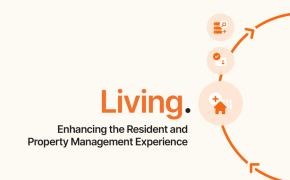Renting isn’t always easy. Besides trying to find the perfect place to call “home,” renters need to keep their own privacy and security as a top priority.
Unfortunately, rental scams are a reality — and they cause big issues for unsuspecting renters. Lost money and stolen information are just a few of the headaches associated with rental scams.
Rently is here to help tenants learn the best ways to protect themselves from rental scams. Use this list of do’s and don’ts to keep you and your information safe while searching for rental homes:
Work with Verified Professionals
The best way to avoid rental scams is to look for reputable, verified listing platforms.
- Navigate Wisely: Avoid sites like Craigslist, online forums, or social media listings from unverified sources.
- Choose the Best Option: Look for your new rental home through well-known property management companies.
Always Look For Red Flags
The first step to protecting yourself against rent-related scams is to know how to spot a fraudulent listing. These three red flags should always be taken seriously:
- “No-Screening” Application Process: While this may sound easy and convenient, this is a classic ploy to attract renters without many other options. Always work with rental listings that include background checks, credit card requirements, and other common screening requirements. “No-Screening” gimmicks should always be viewed as a red flag.
- Unrealistic Prices: Due diligence is one of the most effective ways to protect yourself from rental scams. If you’re aware of the norms in your current rental market, you’ll be able to immediately detect when a listing is not priced correctly. Unrealistic prices may seem attractive at face value, but this tactic is used to bait rental applicants towards a fraudulent rental listing.
- Not Enough Information: Listings should always include more information than less. If you come across a listing that is missing pivotal points, such as the address or full-property photos, at the very best it is unprofessional and at the worst, it is a scam. Either way, renters will want to avoid listings that are missing key details.
Never Wire Any Money
The intention behind many rental scams is simple: to gain profits off of unsuspecting renters. Avoiding rental fraud can be as simple as not sending money until you’ve verified the listing. Even if you do come in contact with a suspicious listing, you can avoid falling prey to the scam by not sending them money or sensitive personal information.
- Hold Onto Your Money: Rental applicants should not be in a rush to hand over their money. Never send any money to unverified people until you are 100% sure that you are not dealing with a scammer.
- Never Wire Through Western Union: Rental scammers may ask you to send them application fees or early deposits through a wire transfer. Avoid this at all costs. Requests to send money through Western Union is a common trick for rental scams.
- Do Not Believe the “Now or Never” Trick: If a rental scammer sees you being wary or hesitant, they may try to pressure you into moving forward with a “now or never” situation. If an unreliable rental contact tries to mention competing renters or create fake buzz around the listing, don’t change your stance. Always verify first.
Stop, Drop, and Verify
If you think you may be in contact with a scammer, stop immediately. Never keep going if your gut is telling you otherwise. Step back and do what you can to verify the situation.
- Take It Slow: Protecting yourself is more important than rushing forward. Avoid the “all or nothing” mentality and go slowly. If you detect red flags, stop altogether.
- Verify the Property: It’s not uncommon for scammers to list properties that aren’t what they say they are — and in some cases, the property may not even exist. Using the street-view feature of Google Maps or driving by the property, if possible, are basic ways to verify the home.
- Cross Reference: Hit the web to cross-reference the information you’ve been provided. Make sure that the contact information, listing details, and photographs all match up. Errors here likely point to fraud.
- Specific to Rently Listings: Contact us directly by email (support@rently.com) or through our live chat option on our use.rently.com/get-help or during your tour.
Instead of worrying about security, use these tips to confidently move forward with the process and find your perfect rental home.
Start your new home search with Rently by clicking here.
Protecting yourself against scams isn’t just for renters and tenants. Property management teams should also be ready to overcome the obstacles associated with rental scams. If you are a property manager, click here for helpful tips on how to protect yourself from scams.




